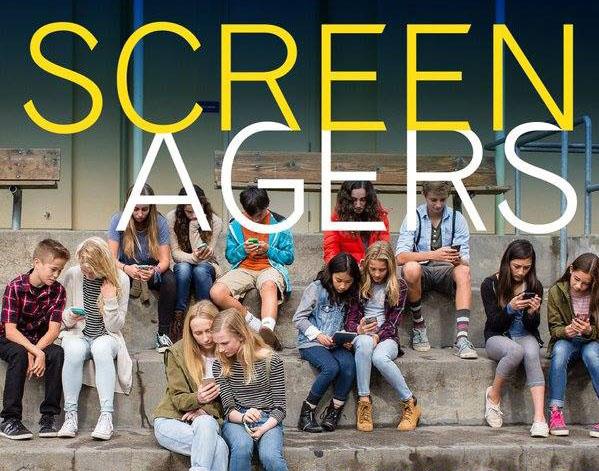facebook.com
There was an unmistakable irony in the sea of digitally illuminated faces filling the seats in Schroeder Hall at the Sonoma State University Green Music Center Friday night. Students, parents and children alike fidgeted with their smartphones waiting for the scheduled showing of “Screenagers” to begin.
“Screenagers” is a documentary by Filmmaker and Primary Care Physician Delaney Ruston that explores the sensitive and somewhat volatile relationship between teenagers and modern technology.
Ruston’s interest in the subject stemmed from her hesitance to allow her own teenage daughter, Tessa to get the smartphone that she so desperately wanted. Ruston feared that if she got Tessa a smartphone, she would become addicted to using it. Tessa, on the other hand, pleaded with her mother, insisting that she was simply being overprotective.
In order to better understand this conflict, Ruston decided to do some research on the effects of prolonged smartphone, computer and television use on teenagers. She then compiled what she found into an informative and engaging independent documentary.
According to Ruston, the average person spends about 6.5 hours a day looking at a screen. This excludes work and school time. So what drives people to become so invested with these devices? “Screenagers” argues it’s a part of human nature. The body releases dopamine every time a person finds a new piece of information. Originally, this was an evolutionary advantage because it drove people to learn and seek new experiences. However, in the Information Age, this burst of dopamine is only a click away at all times, and the ease with which it can be attained makes it highly addictive.
This is especially true for teenagers because the adolescent brain isn’t fully developed yet. This means the prefrontal cortex, which is the part of the brain responsible for self-control, is not yet operating at full capacity. Combining a potentially addictive behavior with an impaired sense of self-control is a recipe for disaster.
Bryahna Alvarez, a fourth-year English major at Sonoma State who attended the screening agreed the compulsive use of technology among children and teenagers is becoming a problem. She recalled the behavior of her younger siblings when expressing her opinion.
“It was a biased film, but at the same time, it did hold some truth. I see it with my younger siblings. They are devaluing their education because they have so much emphasis on technology in their lives,” said Alvarez. “They’re always on their phones and iPads. Once, I took my little sister’s iPhone away from her for an hour and I asked if she could color or something else instead. She threw a fit.”
Becky Vargas, a second-year English major who also watched the documentary had a very different opinion.
“I don’t think it’s a problem to be completely honest. The movie only highlighted the problems with technology, but I feel like the good outweighs the bad,” said Vargas. “Technology helps us with so much. It can really expand young people’s minds. It helps us reach corners of the world that we never could before. It especially helps to keep us updated on politics and current events in general.”
Modern technology is incredible and when used in moderation, it can be very useful. But the problem we seem to be facing is that it is becoming increasingly difficult to use such technology in moderation, especially for children and teenagers.
If you want to fix a problem in society, the problem must first be brought to the attention of the public in an eloquent, and digestible way. This is exactly what Ruston has done with the production and distribution of “Screenagers.”



































